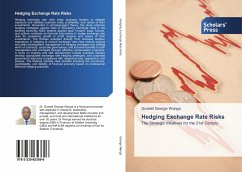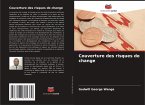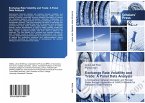Hedging exchange rate risks helps business leaders to mitigate exposure and stabilize business costs, profitability, and values of their investments. Grounded in principal-agent theory, this study explores hedging strategies against risks of fluctuating exchange rates in the banking economy. Bank leaders applied spot, forward, swap, futures, and options contracts as financial instruments to hedge exchange rate risks for sustaining growth in profit margins and values of their investments. The themes emerged directly from business leaders' experience in hedging to reduce exchange rate risks include training and skills development, management of hedging strategies and shifting worth of contracts, corporate governance, and inclusive benefits to both management and principals through effective compensation programs. A focus on training and skill development helped business leaders develop appropriate exchange rate hedging strategies, and corporate governance improved compliance with respective laws, regulations, and policies. The findings indicate clear benefits including the soundness, predictability, and stability of financial economy based on professional effective hedging practices.
Bitte wählen Sie Ihr Anliegen aus.
Rechnungen
Retourenschein anfordern
Bestellstatus
Storno








